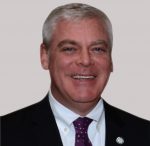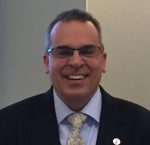Rhode Island’s coast offers beaches and recreational opportunities, diverse habitats, and is an economic engine for the state. Unfortunately, air and water temperatures, sea level, and the frequency of intense storms have increased due to climate change. These changes result in more frequent floods, the acceleration of coastal erosion, and rapid ecological change; in turn, this threatens community safety, the built and natural environments, and important economic sectors. Municipalities across the state are employing tools to plan for a future shaped by change, improving their community’s resilience as well as the quality of life of its residents.
Objectives:
By the end of this module, you will be able to:
- Describe how climate change works;
- Identify current and projected trends; and
- Explain the impacts to your community and the need to plan for resilience.
Video Time: 10 minutes, 50 seconds Audio: required
Speaker Notes| Resources Page
Please give us your anonymous feedback and receive your certificate.
Speaker Bios:
 Mayor Scott Avedisian was born in Warwick and educated in the public schools of Warwick and Washington, D.C. He is the longest-serving mayor in the city of Warwick’s history. He has particularly championed human services reform and environmental protection during his tenure as mayor of Rhode Island’s second largest city. He is presently chairman of the board of directors of the Rhode Island Public Transit Authority. He has also served as trustee, member or board member for more than two dozen other local and statewide agencies and organizations.
Mayor Scott Avedisian was born in Warwick and educated in the public schools of Warwick and Washington, D.C. He is the longest-serving mayor in the city of Warwick’s history. He has particularly championed human services reform and environmental protection during his tenure as mayor of Rhode Island’s second largest city. He is presently chairman of the board of directors of the Rhode Island Public Transit Authority. He has also served as trustee, member or board member for more than two dozen other local and statewide agencies and organizations.
 David Vallee is the hydrologist-in-charge of the National Weather Service’s Northeast River Forecast Center. The center provides detailed water resource and life-saving flood forecasting services to National Weather Service Forecast Offices and the hundreds of federal, state and local water resource entities throughout the Northeast and New York. Vallee has worked for the National Weather Service for over 25 years, serving in a variety of positions including senior service hydrologist at the Taunton Weather Forecast Office from 1993-2000 and as science and operations officer from 2001-2006.
David Vallee is the hydrologist-in-charge of the National Weather Service’s Northeast River Forecast Center. The center provides detailed water resource and life-saving flood forecasting services to National Weather Service Forecast Offices and the hundreds of federal, state and local water resource entities throughout the Northeast and New York. Vallee has worked for the National Weather Service for over 25 years, serving in a variety of positions including senior service hydrologist at the Taunton Weather Forecast Office from 1993-2000 and as science and operations officer from 2001-2006.
 Janet Freedman is a coastal geologist with the Rhode Island Coastal Resources Management Council. She works on coastal hazard issues, mapping, and habitat restoration, emphasizing a science-based approach to coastal policy and planning. She is currently working on the Shoreline Change Special Area Management Plan (Beach SAMP), designed to identify areas that are at risk for coastal hazards, sea level rise, and other climate change impacts. She works in partnership with the University of Rhode Island and Eastern Connecticut State University monitoring shoreline changes along Rhode Island’s south shore and developing green infrastructure pilot projects within Narragansett Bay.
Janet Freedman is a coastal geologist with the Rhode Island Coastal Resources Management Council. She works on coastal hazard issues, mapping, and habitat restoration, emphasizing a science-based approach to coastal policy and planning. She is currently working on the Shoreline Change Special Area Management Plan (Beach SAMP), designed to identify areas that are at risk for coastal hazards, sea level rise, and other climate change impacts. She works in partnership with the University of Rhode Island and Eastern Connecticut State University monitoring shoreline changes along Rhode Island’s south shore and developing green infrastructure pilot projects within Narragansett Bay.

